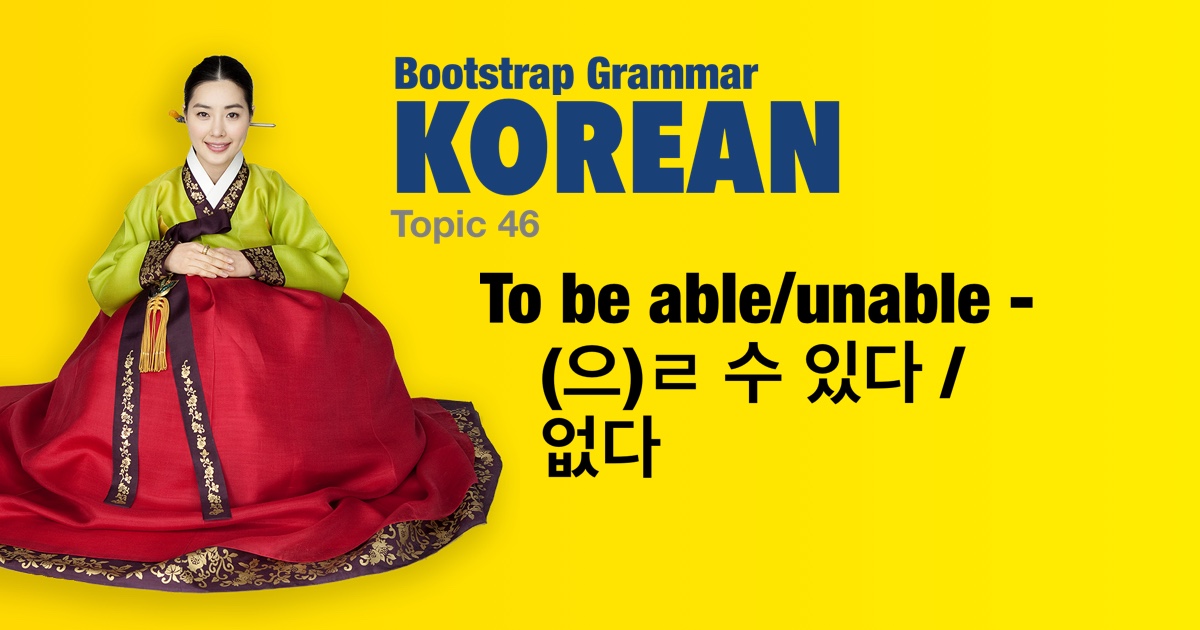Korean grammar - To be able/unable - (으)ㄹ 수 있다 / 없다 |
|||
|
|||
The pattern Verb stem + (으)ㄹ 수 있다 / 없다 is used to convey ability or inability to do something. • 할 수 있어요 means 'can do it' • 할 수 없어요 means 'cannot do it' The sense is of capacity to do something and not permission. The pattern 잘 (못)하다 is similar but has a more permanent sense. |
| Examples: | |
|
아빠는 운전을 할 수 없어요.
(My) dad can't drive. |
|
|
그는 이렇게 큰 돌도 옮길 수 있어요.
He can move even such a large stone.
|
|
|
아직 한국어를 말할 수 없어요.
(I) still can't speak Korean. |
|
|
저는 한국에서 매운 음식을 먹을 수 없었어요.
In Korea I couldn’t eat spicy food. |
|
|
저는 마라톤에서 달릴 수 있을 거예요.
(I) will be able to run marathon. |
|
|
내일 회의에 참석할 수 있을 거예요.
(I) will be able to attend a meeting tomorrow. |
|
|
한국 태권도 팀이 올림픽에서 금메달을 딸 수 있었어요.
The Korean Taekwondo team was able to win a gold medal at the Olympics.
|
|
|
누나는 대학 졸업을 할 수 없었어요.
(My) older sister was not able to graduate from college. |
|
|
올해는 제주도에 갈 수 없을 거예요.
(I) won’t be able to go to Jeju Island this year. |
|
|
민지는 이번 학기에 장학금을 받을 수 있어요.
Minji is able to get a scholarship this semester. |
|
|
졸리지만 잘 수 없어요.
(I) am sleepy but (I) can't go to bed. |
|
|
담배는 건강에 안 좋지만 저는 담배를 끊을 수 없어요.
Smoking is not good for (one's) health but I can't quit smoking. |
|
|
토요일은 친구 생일이기 때문에 만날 수 없어요.
Saturday is (my) friend’s birthday, so (I) won't be able to meet. |
|
|
하고 싶었지만 할 수 없었어요.
(I) wanted to, but (I) couldn't. |
|
|
한국어를 전혀 할 수 없어요.
(I) cannot speak Korean at all. |
|
|
그는 몇몇 한국 사람들보다 한국어를 더 잘 말할 수 있어요.
He can speak Korean better than some Korean people.
|
|
|
불행히도 제 삼촌은 다리를 사용할 수 없어요.
Unfortunately my uncle is unable to use his legs. |
|
|
지금은 술을 마셔서 운전을 할 수 없어요.
(I) can't now drive because (I) drank alcohol. |
|
 |
|




